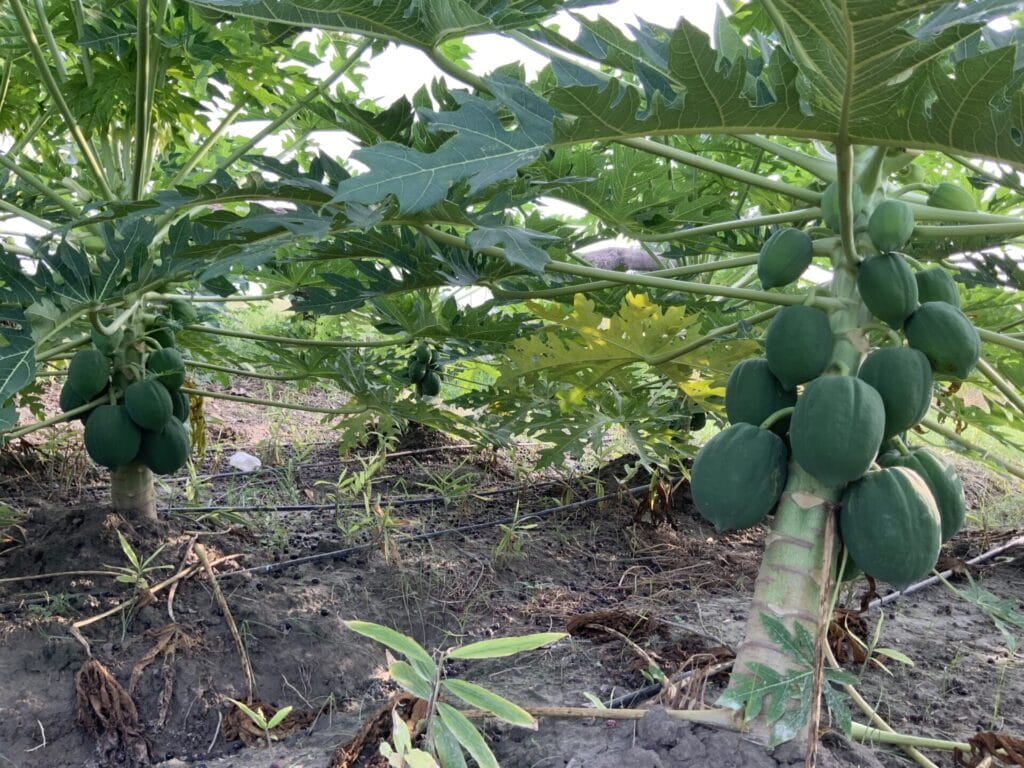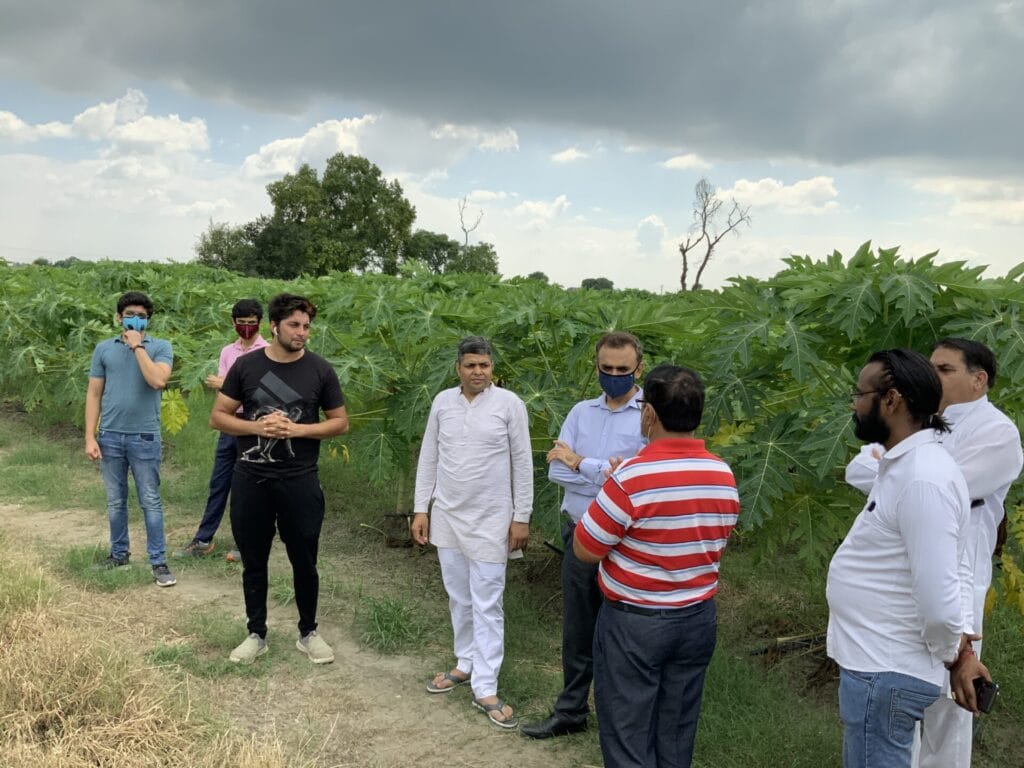In April 2023, even as picturesque images of a rain-soaked Delhi circulated on social media, farmers in the region were in fact living through one of their worst nightmares. The Indian Meteorological Department recorded 20.1 mm of rain in the national capital, marking a 23% increase from the monthly average of 16.3 mm. Things got worse during the months of July and August, as the Yamuna River overflowed, devastating numerous fields. Weather events such as these are just one among the plethora of challenges faced by urban farmers in Delhi.
Ask Abhishek Dhama, a resident of Palla village in Delhi. Abhishek lost his entire sweet corn crop, incurring a loss of around 15 lakh rupees. Similarly, his dreams of capsicum cultivation in September were shattered due to the absence of normal seasonal rain.
Abhishek holds a degree in Electronics and Communication Engineering, but was bent on farming and organic agriculture from early days. His creative farming methods earned him the Innovative Farmer Award in 2019. He learned farming techniques, including organic cultivation, through online platforms like Google and YouTube. Today, he says, adapting to climate variations and erratic weather patterns has become crucial for survival in Delhi, where farmers receive minimal government support.

Indeed, many urban farmers in Delhi-NCR assert that traditional farming practices based on factors like crop budget, soil and timing have now given way to decisions influenced by climate change. With annual temperature fluctuations and unpredictable weather patterns, the agriculture landscape has been transformed rapidly.
Other challenges: Marketing and certification
Selling produce in Delhi’s markets, especially in crowded mandis like Azadpur, poses a challenge for small-scale farmers. Abhishek too faced initial rejection, but later established collaboration with major buyers such as Reliance, Big Basket, and Mother Dairy. However, he points to the absence of government support and certification processes for organic farming in Delhi.
Read more: How Bengaluru’s APMC yard works and what it means for farmers
The way ahead
Changing rainfall patterns and temperature fluctuations in Delhi-NCR are attributed to climate change. Abhishek predicts that this will make open cultivation increasingly difficult by 2029. Soil health, too, is diminishing every year, and is manifested through the decline in average wheat production between 2015 and 2024.

He advises urban farmers to rethink their approach, suggesting changes such as diversifying crops within the family and using one acre for a single crop. This, he believes, will prevent soil exhaustion and ensure the sustainability of farming practices in the face of climate change.
The shift towards climate-resilient farming is critical not only for the survival of urban farmers but also for ensuring food security in the region. The challenges are immense, but with resilience and strategic adaptation, urban farming in Delhi can hope for a sustainable future.
Note: The author is one of six selected Fellows for the “Citizen Matters – Urban Environmental Reporting Fellowship 2023” focusing on the Delhi-NCR region. This short piece was produced as part of her work under the Fellowship.